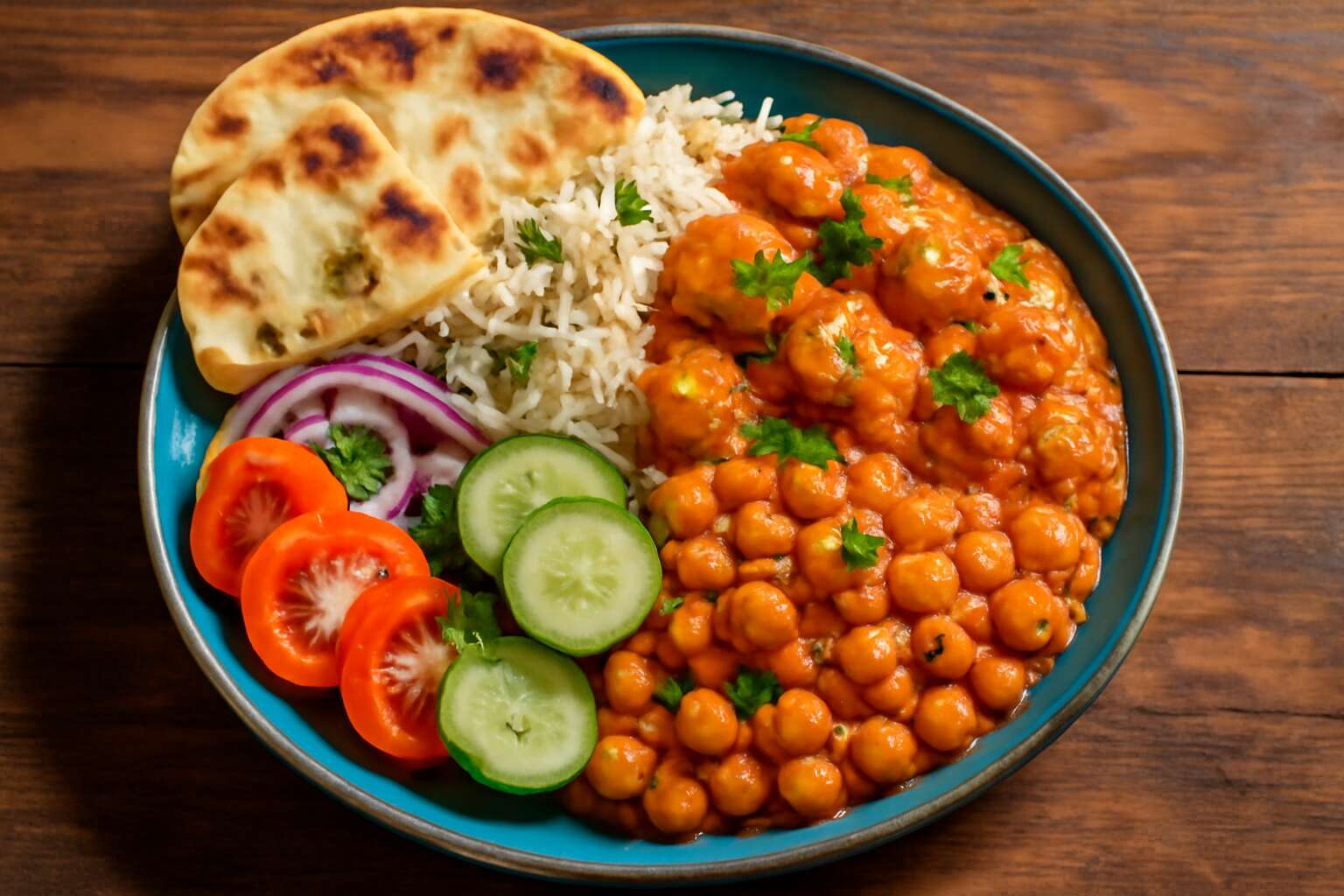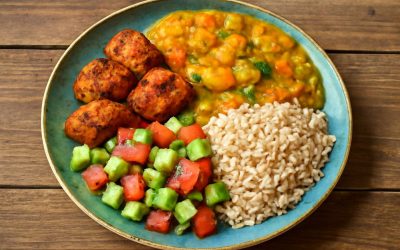Understanding Indian Cuisine and Its Ingredients
Overview of Popular Indian Dishes
Indian cuisine, a tapestry woven with vibrant spices and fragrant herbs, offers a sensory journey that captivates the palate. Its rich heritage is reflected in dishes like creamy biryanis, hearty dals, and zesty curries, each ingredient whispering tales of tradition and culture. Yet, amidst this symphony of flavors, questions often arise: can Indian food cause constipation? The answer lies intertwined with its ingredients and preparation methods, where the delicate balance of fiber and spices plays a pivotal role.
Many popular Indian dishes rely heavily on ingredients like lentils, chickpeas, and rice — all of which are naturally high in fiber. Fiber, while essential for digestion, can sometimes have a paradoxical effect when consumed in excess or without adequate hydration. Spices such as turmeric and chili powder, though celebrated for their anti-inflammatory properties, may also irritate sensitive digestive systems. For those prone to sluggish bowels, understanding the nuances of Indian cuisine becomes vital in determining whether it can cause constipation or serve as a wholesome aid to digestion.
Indian cuisine’s allure is undeniable, yet its impact on gut health hinges on a delicate interplay of ingredients and individual tolerance. Balancing the richness of these dishes with mindful eating can transform a culinary experience into a digestive harmony, ensuring that the love for Indian food remains a source of nourishment rather than discomfort.
Common Ingredients in Indian Food
Indian cuisine is renowned for its bold flavors and aromatic spices. Its ingredients are often packed with nutrients, making it both delicious and nutritious. However, understanding the key components of Indian food can shed light on whether it can cause constipation. Many dishes rely heavily on ingredients like lentils, chickpeas, rice, and vegetables — all high in dietary fiber. Fiber is essential for healthy digestion, yet consuming too much without proper hydration might lead to sluggish bowels.
Common ingredients in Indian food include turmeric, cumin, coriander, and chili powder. While these spices enhance flavor and offer anti-inflammatory benefits, they can irritate sensitive digestive systems if consumed excessively. Balancing these ingredients with hydration and portion control is crucial. For those wondering, can Indian food cause constipation? The answer depends on individual tolerance, ingredient quality, and cooking methods. A mindful approach can turn Indian cuisine into a nourishing experience rather than a digestive challenge.
Spices and Their Effects on Digestion
Indian cuisine is a tapestry woven with vibrant spices and fragrant herbs, each ingredient telling a story of centuries-old traditions. Its complex flavors often mask the subtle effects these components can have on digestion. Spices like turmeric, cumin, coriander, and chili powder are celebrated for their anti-inflammatory and antioxidant properties, yet their potency can sometimes challenge sensitive stomachs. Different individuals react uniquely to these spices; for some, they invigorate digestion, while for others, they might irritate the gastrointestinal lining.
The question “can Indian food cause constipation?” lingers in the minds of many. While the high fiber content from lentils, chickpeas, and vegetables generally promotes healthy bowel movements, excessive spice consumption without adequate hydration could lead to sluggish digestion. In some cases, the very richness and complexity of Indian dishes contribute to digestive discomfort, especially if prepared with heavy oils or processed ingredients.
Understanding how spices affect digestion is crucial. For instance,
- Chili powder can stimulate gastric secretions but may cause irritation in sensitive individuals,
- Cumin and coriander are generally gentle and aid digestion,
yet balance remains key. The intricate dance of flavors in Indian cuisine can be both a blessing and a curse, depending on one’s digestive tolerance and eating habits. Ultimately, whether Indian food causes constipation hinges on personal digestion and mindful consumption—an art as delicate as the cuisine itself.
Factors in Indian Food That May Contribute to Constipation
High-Fiber Content in Certain Dishes
Indian cuisine, with its vibrant tapestry of flavors and textures, often conjures images of hearty, aromatic dishes that evoke both comfort and indulgence. Yet, amidst the symphony of spices and ingredients, there lurks a question that piques curiosity: can Indian food cause constipation? The answer is nuanced, woven into the fabric of certain dishes that boast a high fiber content. While many Indian recipes embrace the health benefits of lentils, vegetables, and whole grains, some preparations—particularly those rich in dairy, refined flours, or heavy spices—may contribute to digestive sluggishness.
For those sensitive to dietary shifts, it’s essential to recognize that traditional Indian dishes such as dals, whole wheat chapatis, and vegetable curries often contain substantial amounts of dietary fiber, which promotes healthy digestion. However, dishes that are overly processed or laden with ghee and refined ingredients can slow the digestive process, raising the question: can Indian food cause constipation? The answer hinges on individual tolerance and the specific ingredients used. Understanding these factors can help diners enjoy Indian cuisine without compromising their digestive harmony.
Use of Spicy and Oily Foods
The complexity of Indian cuisine extends beyond its rich flavors and vibrant colors. While many dishes are celebrated for their health benefits, certain elements within Indian food can influence digestive health—raising the question: can Indian food cause constipation? The answer lies in the specific ingredients and preparation methods that are employed.
Spicy and oily foods are prime suspects in disrupting digestive harmony. Dishes laden with excessive chili, ghee, or fried components can slow down intestinal motility, leading to discomfort and irregular bowel movements. Spices like cumin, black pepper, and garam masala, although beneficial in moderation, might irritate sensitive stomachs when used excessively. For those wondering can Indian food cause constipation, the answer is often linked to these high-fat, spicy preparations that challenge the digestive system.
Among the contributing factors, the presence of processed ingredients or refined flours cannot be overlooked. Many street foods and fast-paced meals tend to incorporate refined wheat or fried snacks that lack fiber, further exacerbating constipation. So, while traditional Indian dishes can promote healthy digestion, indulgence in overly oily or spicy foods may trigger digestive sluggishness, especially for individuals with sensitive stomachs or underlying health conditions.
Influence of Lentils and Legumes
Within the enchanting tapestry of Indian cuisine, lentils and legumes hold a revered place, their presence whispering tales of ancient harvests and timeless nourishment. Yet, for those pondering whether can Indian food cause constipation, these humble ingredients might hold a dual nature. While they are celebrated for their high fiber content, which can promote healthy digestion, they can also become a source of digestive disruption if not prepared or consumed mindfully.
When lentils and legumes are cooked with meticulous care, their fibrous bounty can aid in maintaining regular bowel movements. However, excessive consumption or insufficient soaking and cooking can lead to the formation of complex polysaccharides that challenge the gut’s delicate balance. This is often magnified when paired with refined flours or heavy, oily spices, creating an intricate web that may slow down intestinal motility.
In some cases, the presence of oligosaccharides—naturally occurring sugars in beans—can cause bloating or gas, especially in sensitive individuals. To truly understand if can Indian food cause constipation, it is essential to recognize how these ingredients are incorporated. For example, dishes that feature hearty lentil stews or legume-based curries, if overindulged, may tip the digestive scales toward sluggishness.
Dairy Products and Their Impact
Among the many facets of Indian cuisine, dairy products carve out a unique space—an indulgence wrapped in creamy textures and comforting warmth. Yet, when pondering whether can Indian food cause constipation, dairy’s role demands careful scrutiny. Rich, buttery curries, lassi, and paneer dishes are staples of countless meals, but their impact on digestion can sometimes be paradoxical.
For some, dairy acts as a gentle lubricant, soothing the digestive tract. For others, especially those with lactose intolerance or sensitive guts, it can become a catalyst for sluggishness. Excessive intake of dairy, particularly in heavy, oily preparations, may slow down bowel movements, transforming a nourishing ingredient into a digestive obstacle. This is often amplified when dairy is paired with refined flours or spicy condiments, creating a complex web that challenges the gut’s delicate balance.
Interestingly, certain Indian dishes rely heavily on dairy to achieve their authentic flavor profile, yet the very richness that defines them can sometimes contribute to constipation. To better grasp this delicate dance, consider how dairy interacts with other ingredients and the overall composition of a meal. It’s this intricate interplay that determines whether Indian food will support or hinder healthy digestion, especially in relation to the question—can Indian food cause constipation?
How Indian Cooking Habits Might Affect Digestive Health
Portion Sizes and Meal Frequency
Indian cuisine, with its vibrant tapestry of flavors, often stirs curiosity about its effects on digestive health. One aspect that quietly influences this delicate balance is portion sizes and meal frequency. When meals are generously heaped or consumed in hurried succession, it can overwhelm the digestive system, making it harder to process the rich tapestry of spices, oils, and legumes. This overload might lead to sluggish bowel movements or even constipation.
Furthermore, irregular eating patterns or excessive snacking on heavy, spicy foods may disrupt gut harmony. The question lingers—can Indian food cause constipation? While the answer varies from person to person, understanding the rhythm of meal portioning and timing becomes vital. For those sensitive to their digestive response, smaller, more frequent meals might keep the bowels moving smoothly, rather than allowing sluggishness to take hold.
Cooking Methods and Fats Used
Indian cooking often involves a complex interplay of ingredients, cooking methods, and fats that can influence digestive health in subtle yet significant ways. The choice of fats—such as ghee, mustard oil, or vegetable oils—can impact how efficiently the digestive system processes meals. For instance, excessive use of oily or fried dishes might slow down gut motility, raising the question: can Indian food cause constipation? Many traditional recipes, rich in fats, might contribute to sluggish bowel movements if consumed in large quantities or without balance.
Additionally, the method of cooking plays a crucial role. Techniques like deep frying, heavy sautéing, or slow-cooked gravies can alter the digestive load. Some dishes, especially those with high oil content or heavily spiced, tend to be more taxing on sensitive stomachs. Interestingly, incorporating lighter cooking methods or moderating fat use could help maintain digestive harmony. When considering if Indian food can cause constipation, understanding these culinary nuances provides a clearer picture of how habits and preparation influence gut health in South Africa’s diverse dietary landscape.
Eating Habits and Meal Timing
Indian cooking habits, especially meal timing and eating patterns, can influence digestive health significantly. In South Africa, where diverse dietary preferences coexist, understanding how these habits affect gut function is crucial. Late-night feasts or skipping breakfast might disrupt the natural rhythm of the digestive system, leading to sluggish bowel movements. When meals are irregular or portions are too large, the gut struggles to process food efficiently.
Furthermore, the way meals are structured plays a role. For example, consuming heavy, oily dishes without balancing them with fiber-rich foods can exacerbate constipation. Some traditional Indian meals tend to be rich in fats and spices, which may slow digestion if eaten in excess. Including lighter, fiber-packed foods in daily routines can help maintain digestive harmony and prevent concerns like whether can Indian food cause constipation.
Potential Health Conditions and Dietary Factors Linked to Constipation
Dehydration Due to Spicy or Salt-Heavy Food
While Indian cuisine is celebrated for its vibrant flavors and diverse ingredients, it can sometimes be a hidden culprit behind digestive discomfort. One aspect often overlooked is the potential for certain conditions and dietary factors to contribute to constipation. For instance, dehydration can become a silent adversary when spicy or salt-heavy Indian dishes are consumed in excess. Spicy foods, rich in capsaicin, may irritate the gastrointestinal tract, leading to dehydration if adequate water intake isn’t maintained. This dehydration, in turn, hampers the body’s ability to soften stool, making bowel movements more difficult.
Moreover, individuals with underlying health conditions such as irritable bowel syndrome or hypothyroidism may find their symptoms exacerbated by the high salt content and oily preparations found in many Indian meals. These factors can slow down digestion and intensify constipation. To understand how diet influences gut health, it’s essential to consider these intertwined elements—because, quite simply, can Indian food cause constipation? Yes, but the answer depends on a complex matrix of dietary choices and health variables.
Food Sensitivities and Allergies
For many, Indian cuisine offers a tantalizing palette of flavors, but lurking beneath the vibrant spices and aromatic herbs is a question that deserves attention: can Indian food cause constipation? While the answer isn’t a simple yes or no, certain health conditions and dietary factors can turn a delicious meal into a digestive dilemma. Individuals with irritable bowel syndrome or hypothyroidism, for example, may experience heightened sensitivity to high salt content or oily preparations common in Indian dishes, leading to slower digestion and discomfort.
Food sensitivities and allergies also play a crucial role. Some people find that ingredients like gluten in certain bread varieties or specific spices trigger digestive upheavals, including constipation. Identifying these sensitivities can be pivotal in understanding how Indian food affects gut health. Interestingly, the complex interplay of these elements highlights why the question “can Indian food cause constipation” has no one-size-fits-all answer, but rather depends on individual health profiles and dietary choices.
Imbalance in Fiber and Fluid Intake
Health conditions such as hypothyroidism and irritable bowel syndrome significantly influence how our bodies process Indian cuisine. These conditions can slow down digestion, making it easier for constipation to occur. Additionally, dietary factors like an imbalance in fiber and fluid intake play a crucial role. When Indian meals are rich in oily or spicy foods but lack sufficient hydration, the risk of can Indian food cause constipation increases.
For example, spicy dishes and fried foods can dehydrate the digestive system, while low water consumption hampers bowel movements. To maintain smooth digestion, it’s essential to balance fiber-rich foods like lentils and vegetables with adequate fluids. In fact, a simple
- inadequate water intake
- excessive consumption of oily foods
- lack of dietary fiber
can turn an otherwise delicious Indian meal into a source of digestive discomfort. Recognizing these factors helps clarify whether Indian food is contributing to constipation for individual health profiles.
Debunking Myths: Does Indian Food Naturally Cause Constipation?
The Role of Spices and Their Varied Effects
Amidst the vibrant tapestry of Indian cuisine, a common question persists: can Indian food cause constipation? The answer isn’t straightforward, as it largely depends on the ingredients and preparation methods. While some believe that the rich, spicy dishes might disrupt digestion, this isn’t universally true. Many Indian recipes are naturally high in fiber, thanks to ingredients like whole grains, lentils, and vegetables, which promote healthy bowel movements. Spices such as turmeric and cumin can actually aid digestion, whereas excessive use of chili or oily preparations may irritate sensitive stomachs. The varied effects of Indian spices demonstrate that not all Indian food causes constipation; instead, it’s often a matter of balance and moderation. Understanding this nuance helps dispel myths around Indian cuisine and digestive health, emphasizing that thoughtful ingredient choices are key to enjoying its flavors without discomfort. Ultimately, whether Indian food causes constipation hinges on individual tolerance and how the dishes are prepared and consumed.
Cultural Variations in Indian Cooking
Many believe that Indian cuisine, with its bold spices and hearty flavors, automatically leads to digestive issues like constipation. However, the truth is far more nuanced. Can Indian food cause constipation? The answer depends largely on the ingredients, cooking methods, and individual tolerance. In fact, certain regional variations in Indian cooking favor ingredients that support healthy digestion, such as high-fiber vegetables and whole grains.
For example, dishes from South India often incorporate rice and lentils, which are naturally high in fiber and aid in regular bowel movements. On the other hand, some North Indian recipes may include rich, oily gravies that could potentially disrupt digestion if consumed excessively. The diversity within Indian cuisine means that not all Indian food causes constipation; much depends on how dishes are prepared and eaten. Recognizing these cultural variations is key to understanding whether Indian food might impact your digestive health.
Benefits of Nutrient-Rich Indian Meals
Many believe that Indian food, with its vibrant spices and hearty flavors, is a recipe for digestive trouble. But is this really the case? The truth is, can Indian food cause constipation? The answer isn’t a simple yes or no. It largely depends on the ingredients, cooking methods, and individual tolerance. Interestingly, some Indian dishes are packed with high-fiber vegetables and whole grains that actually promote healthy digestion.
For example, South Indian cuisine often features rice and lentils, both of which are rich in dietary fiber. These ingredients support regular bowel movements and can even help prevent constipation. Conversely, some North Indian recipes include rich, oily gravies that, if consumed excessively, might contribute to digestive discomfort. So, the question of can Indian food cause constipation is nuanced—much depends on how dishes are prepared and consumed.
Understanding the cultural and regional diversity within Indian cuisine reveals that many traditional meals are designed to nurture digestive health. In fact, nutrient-rich Indian meals—featuring fiber, legumes, and whole grains—offer numerous benefits for maintaining gut health. Rather than assuming Indian food causes constipation, exploring these variations uncovers a world of nourishing options that support overall well-being.
Tips to Prevent Constipation While Enjoying Indian Food
Incorporate Dietary Fiber and Hydration
Within the vibrant tapestry of Indian cuisine lies a paradox—delicious yet sometimes mischievous to our digestive harmony. While the spices and rich flavors enchant the palate, a question lingers—can Indian food cause constipation? The answer is nuanced, but one truth remains: balancing indulgence with mindful choices is paramount. To prevent discomfort, incorporating foods high in dietary fiber is essential, as fiber acts like a gentle broom sweeping through the intestines, promoting smooth passage.
Hydration, often underestimated, wields the power to transform a potentially troublesome meal into a digestive delight. Drinking plenty of water helps soften stool and keeps the bowels moving with grace. For those who savor beloved dishes like dals, curries, and chapatis, a strategic addition of fiber-rich ingredients—like vegetables, whole grains, and legumes—can make all the difference.
Consider this simple approach: include a variety of fiber sources and maintain a steady intake of fluids. Doing so ensures that the answer to can indian food cause constipation remains a resounding no, turning every meal into a celebration of both flavor and well-being!
Choose Cooking Methods Wisely
When savoring the vibrant flavors of Indian cuisine, it’s easy to get swept away by the aromatic spices and rich sauces. However, behind the delightful taste lies a crucial aspect of digestion—cooking methods that can influence whether Indian food causes constipation. Choosing how to prepare dishes wisely can make all the difference in maintaining digestive harmony.
Opting for healthier cooking techniques, such as steaming, grilling, or sautéing with minimal oil, helps preserve the natural fiber and nutrients in ingredients. These methods support smoother bowel movements and reduce the risk of discomfort. Additionally, incorporating a generous amount of vegetables and whole grains not only enhances flavor but also boosts fiber intake, which is vital in preventing constipation.
In essence, the way Indian food is cooked can either contribute to digestive issues or promote gut health. By prioritizing mindful preparation, you can enjoy the culinary richness of Indian cuisine without the worry—can Indian food cause constipation? With the right choices, the answer is a resounding no! Embracing balanced cooking methods ensures that every meal nourishes both body and soul, turning every bite into a celebration of well-being.
Balance Spicy and Oily Dishes
Indian cuisine is renowned for its bold flavors and aromatic spices, but it’s natural to wonder—can Indian food cause constipation? The answer depends largely on how dishes are prepared and consumed. Spicy and oily foods are common in Indian cooking, and these can sometimes slow down digestion if eaten excessively or without proper hydration.
To prevent constipation while enjoying Indian dishes, consider balancing spicy, oily, and fried foods with fiber-rich ingredients. Incorporating more vegetables, whole grains, and legumes into meals boosts fiber intake, which is essential for healthy bowel movements. Additionally, staying well-hydrated helps mitigate the dehydrating effects of spicy foods, reducing the risk of constipation.
- Opt for steaming or grilling instead of deep-frying.
- Limit heavy cream-based sauces and opt for tomato or yogurt-based options instead.
- Eat smaller, more frequent meals to ease digestion and promote regularity.
By making mindful choices about cooking methods and ingredient balance, you can enjoy the vibrant flavors of Indian cuisine without worrying—can Indian food cause constipation? With proper planning, the answer is a definite no! Nourish your gut and delight your palate simultaneously.




0 Comments